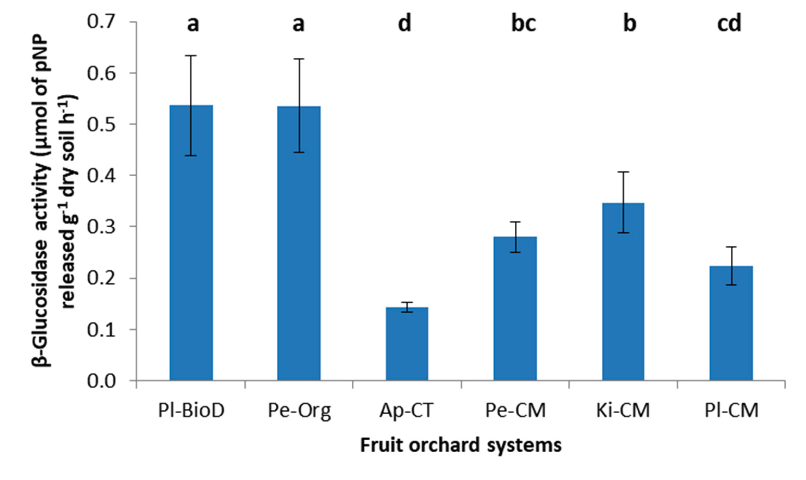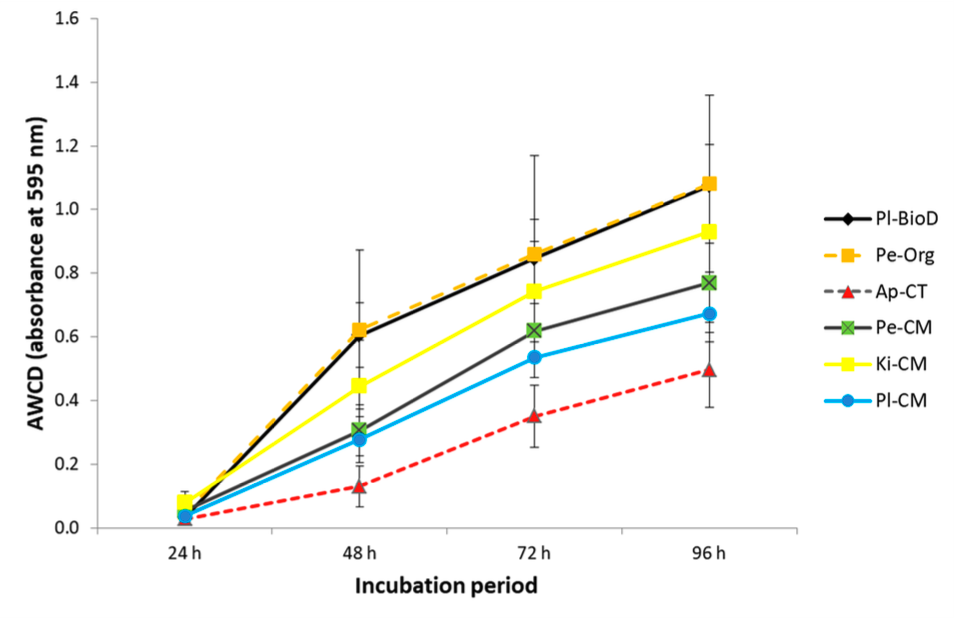What impact do different agricultural practices have on soil life in orchards in the long term? A team of researchers led by Aissa Arous investigated this question by studying commercial orchards in southern Italy. The aim of their research was to evaluate the effects of sustainable practices compared to conventional methods on microbial biomass activity and functional diversity in the soil.
Soil microorganisms play a crucial role in maintaining soil fertility. Sustainable soil management aims to maintain soil functions by minimising disturbance and enhancing them through the use of organic matter. This allows agricultural systems to function more effectively while increasing crop yields and reducing negative environmental impacts.
For this study, six mediterranean orchards in southern Italy were analysed, each of which has been managed either conventionally, organically or biodynamically for more than 15 years. The results show that organic and biodynamic practices lead to a higher soil organic carbon (SOC) content. In these soils, the microbiological activity and diversity of microbial communities is also increased, with the highest values in biodynamically grown plums and organically grown peaches. The lowest values were measured in conventionally farmed apricots.

